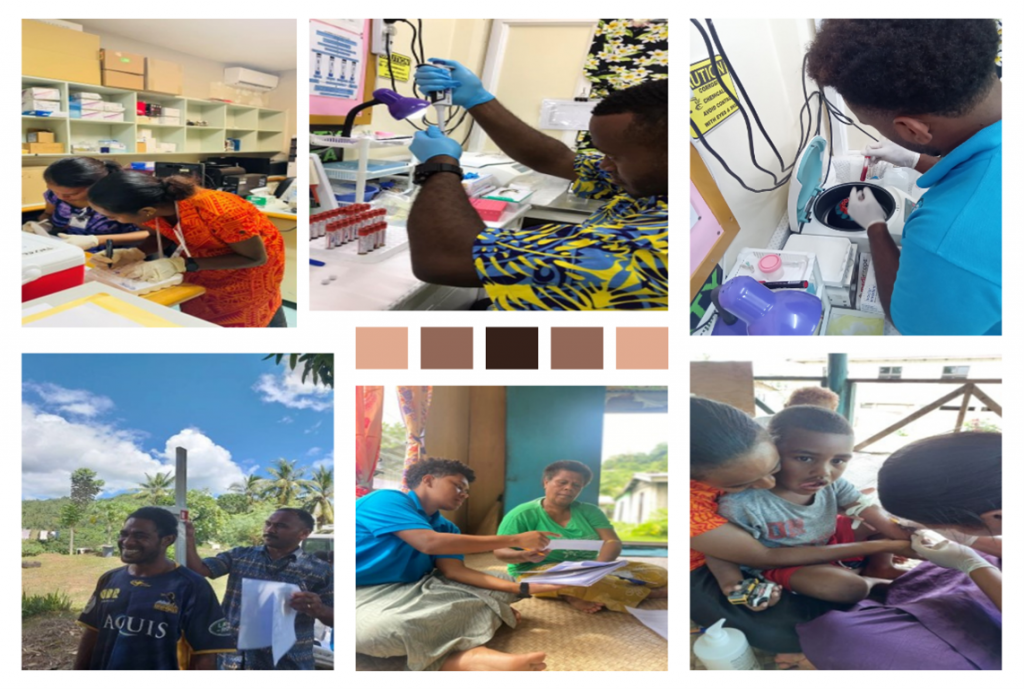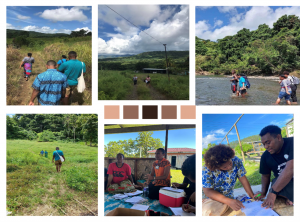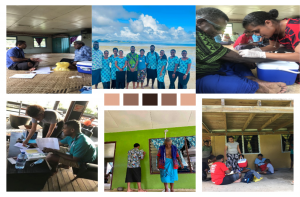
POPULATION BASED-AGE STRATIFIED ASSESSMENT OF SARS- Cov2 SEROPOSITIVITY IN FIJI

Fiji succumbed to the global COVID-19 pandemic in 2021 experiencing widespread community transmission with large waves of disease caused by different variants of the SARS-CoV2 virus that causes the disease. At the peak of COVID-19 transmission in the country, disease incidence in Fiji was amongst the highest in the world. By mid-2023 a total of 885 COVID-19 deaths had been recorded and although vaccination rates for the first two doses of COVID-19 vaccine were high, uptake of booster doses amongst high-risk groups has been variable. Although COVID-19 hospitalizations and mortality have reduced significantly since 2021 direct measures of population level immunity to the SARS-CoV2 virus are currently lacking. An understanding of population level immunity to SARS-CoV2 variants provides useful information for evaluating the impact of vaccination and informing the need for booster doses of vaccine. Serosurveys provide an opportunity to evaluate to determine exposure to specific antigens and also evaluate antibody responses to these antigens. These surveys identify a sample of the population and collect blood specimens which are then evaluated at a medical laboratory for the presence of specific markers of previous infection and of immunity.

In 2022, with support from the Fiji Ministry of Health and Medical Services, the Communicable Disease Research Centre (CDRC) of the Fiji Institute of Pacific Health Research launched the Population based Age stratified assessment of SARS-CoV2 Seropositivity in Fiji Project or PASS Fiji Project (link to FNU page with launch). This project is funded by the Australian Department of Foreign Affairs and Trade (DFAT) and will directly assess population exposure and immunity to SARS-CoV2 from 2022-2024 in alignment with the WHO Unity Protocol for SARS-COV2 serosurveys. The PASS Fiji Project includes two separate research studies and the establishment of a serology laboratory for research at the College of Medicine, Nursing and Health Sciences. Technical support for the study is being provided by the University of Otago through its existing affiliation with the CDRC and also by the University of Auckland.

In early 2023 the PASS Fiji project began recruitment for its two research studies. The first study involves repeat cross-sectional surveys of the population examining the proportion of Fijians who test positive for previous exposure to SARS-CoV2 and, the strength of antibody responses in these. The second study involves the follow-up of people receiving booster doses of COVID-19 vaccine to determine changes in antibody responses following booster vaccination. In August 2023, the FNU Container Serology Laboratory was opened (Insert link to story/blog). This laboratory facility will be used initially for PASS Fiji studies but will enable medical laboratory research to be conducted at the Fiji National University for other staff and student research. The laboratory also provides a storage facility for biobanking of samples to enhance the research outputs of the institution. In 2024 the PASS Fiji project will release results from the first survey to provide an assessment of population level immunity to SARS-COV2 in Fiji.
PASS Fiji Study Prelim Findings Study English Final
PASS Fiji Infographic Fijian Final
PASS Fiji Infographic English Final
PASS FIJI FIELD BLOGWEBSITE English Final